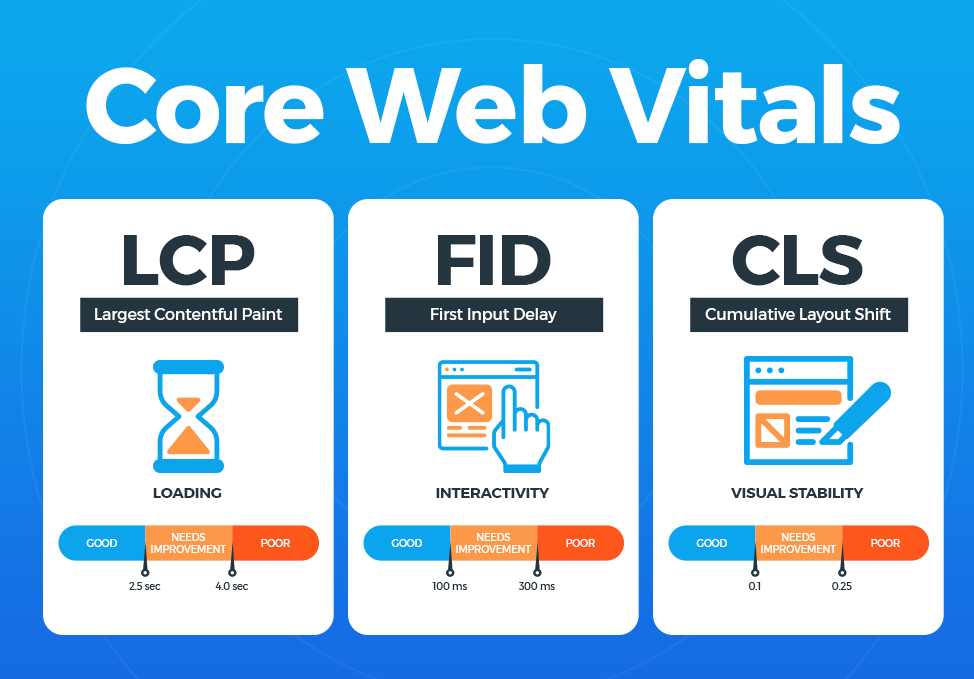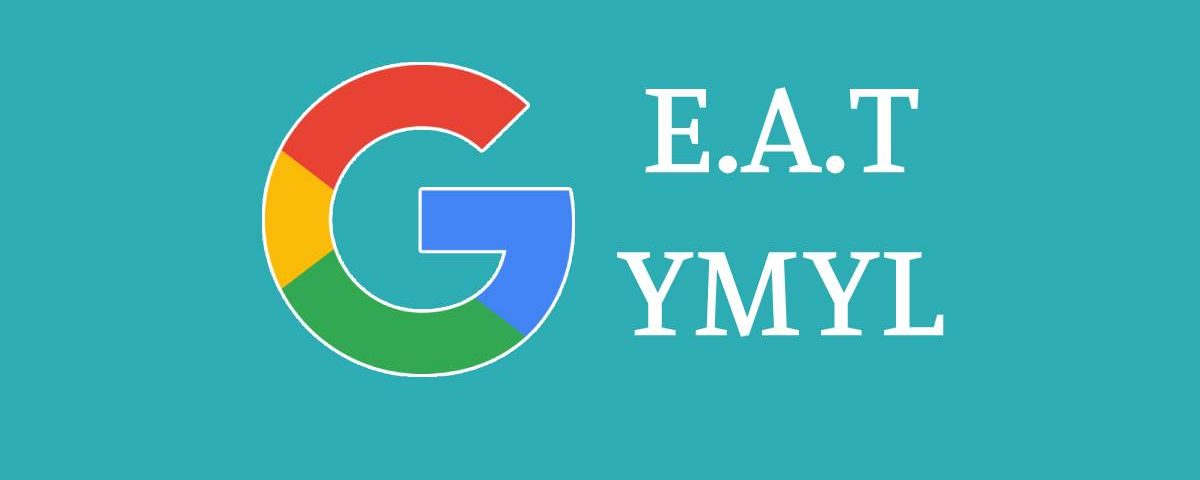Semalt Predicts Top SEO Promotion Trends For 2022

The end of the year is a high time to summarize achievements and plan actions for the future, analyzing mistakes. For SEO specialists, the main subject of reflection is search engine updates. The success of the optimizer depends on them.
Every year, Google releases several updates, the number of ranking factors and the volume of requirements for online resources is constantly growing, thus, is always food for the mind. Each Google innovation is another challenge and test of professionalism, which requires a thorough analysis of the situation and the search for optimal solutions.
TOP algorithms of the outgoing year, which will be relevant in 2022:
- Core Web Vitals - the algorithm was launched in the summer and it continues to actively develop.
- Page Experience is a new ranking signal launched in May 2021 focused on improving the user experience.
- Mobile-first index - In 2021, Google started and continues to move sites to indexing with a focus on mobile devices.
- Passage Indexing - the algorithm was launched in February 2021 and it allows the search engine to better understand pages with relevant, but poorly structured content - "looking for a needle in a haystack".
- Updating the Page Quality algorithm for the EAT concept.
- Updated display of Title in Google SERPs.
In 2022, optimization will need to be carried out with an emphasis on future updates, but try to make sure that by their release the web resource meets the existing requirements as much as possible. We will tell you how to achieve this.
Core Web Vitals

In 2020, Google announced, and in the summer of 2021 launched a new algorithm for assessing the quality of sites - the Core Web Vitals. If you follow it, you can significantly improve the position of the resources in the search results.
Parameters that are evaluated after the Core Web Vitals update:
- LCP (Largest Contentful Paint) - how soon the main content of the page was loaded.
- FID (First Input Delay) - how soon you can start interacting with the page.
- CLS (Cumulative Layout Shift) - how much the layout is shifted when loading.
Tips for adapting to new ranking factors:
- Use Chrome User Experience data to highlight the percentage of users with a negative site experience.
- Use Google Search Console to understand how your site works on mobile and desktop.
- Analyze page groups by LCP, CLS, and FID to identify problematic ones.
Core Web Vitals parameters help your site stay up-to-date and competitive in the searches. Because the official part of Google's search ranking algorithm is essentially a page experience score.
It is important for SEOs and developers to understand exactly how the Core Web Vitals parameters affect optimization performance. Competent work with these parameters will increase the site's ranking because over time they will play an increasing role in ranking. Those sites that have better LCP, FID, CLS indicators, all other things being equal, will take higher positions in the search results. Good news - there is still time to stay ahead of the competition!
Page Quality of YMYL projects

Google is concerned about the safety of users, so it checks YMYL sites (Your Money or Your Life) with particular attention. These include resources about medicine, finance, psychology. For sites of this type, the highest requirements are imposed - EAT (Expertise, Authoritativeness, Trustworthiness), and the assessment is no longer carried out by search robots, but by real people.
The reasons why the EAT criteria arose:
- the rise of disinformation and the emergence of fake news;
- extremist behaviors on the Internet;
- the impact of online information on elections;
- criticism of the quality of medical information on the Internet;
- the impact of disinformation on the spread of disease.
Expertise
The presence of varied and high-quality content on the site is a big plus. This includes not only standard product cards, reviews, listings, but also news, reviews, articles - valuable information that will allow the user to understand the topic and make a purchase decision. It is best if the author of the content is truly an expert in a particular field.
Authoritativeness
Here's what Google says: "Understanding who is in charge of a website is an important part of evaluating the EAT for most types of websites. High-quality pages should contain clear information about the site so that users feel comfortable and trust it. "
In blogs, for example, it is important to include the author under each post. Ideal when the signature is made in the form of a hyperlink leading to a page with all the author's materials and brief information about him.
Reliability
Here we are talking about the reputation of the site or the organization as a whole. It is provided by such factors:
- An exhaustive amount of quality content.
- Completed sections "Contacts", "About us". If the site involves purchases or financial transactions, a support service should also be provided so that users can get help with problems.
- Confirmation of a good reputation: prestigious awards, recommendations from renowned representatives, and industry professionals.
Page Experience
The algorithm is focused on improving the user experience and contains a number of requirements:
- an optimized mobile version that meets the mobile-first algorithm;
- high rates of loading speed of Core Web Vitals;
- open content;
- no virus/malware software;
- availability of an SSL certificate and connection via HTTPS;
- no annoying ads that close the work area.
Mobile-Friendly

The metric shows whether the site is optimized for mobile devices. To check if your site has mobile issues, you can use the report in Search Console. It will highlight specific weaknesses and the URLs where they occur.
In addition to this report, the standalone Google Mobile-Friendly Test tool can be used to test individual URLs.
Malicious software
Safe Search is a metric that shows whether your site has malicious software, dangerous downloads, deceptive content (such as phishing), or other similar problems. You can use the Google Search Console report or the Safe Browsing site status tool to check for any Safe Browsing issues.
Availability of HTTPS
Metrica is responsible for the SSL certificate and the operation of the site over an HTTPS connection. Thus, Google evaluates sites that can encrypt user data that are entered during the registration and payment process.
Pop-up ads on your phone
Pop-up ads make content less accessible, especially on mobile, as they overlap most of the screen. This degrades the user experience and Google, accordingly, "punishes" such sites.
Mobile-first index
Launched this year, the Mobile-First Index continues to gain momentum. This is an algorithm for indexing and ranking web pages in the Google search engine, which will evaluate not the desktop, but the mobile version of the site. That is, first of all, the search engine will give out exactly the mobile versions of resources if any. This applies to both smartphones and PCs.
Indexing pass
Google has learned to index not only entire web pages, but also to understand the relevance of individual parts of them.
Does Google index sections or parts of pages?
Google still indexes full pages, but will now also consider the content and meaning of passages when searching for the most relevant information. Even if the answer to a search query is buried deep within the page, the system will be able to find that specific part for you.
The search engine does not index individual passages. However, it does better at zoning the page content and displaying useful information better when ranking. This innovation is useful for identifying pages that have one specific section that particularly well matches your search query.
Conversion Indexing looks at the content of a page, determines if portions of the page respond to a search query, and delivers those results to SERPs. If the page is already in good rankings, conversion indexing may not affect the site at all.
Previously, the search engine "disliked" long and poorly structured texts. And now, if such a long text contains really valuable information, the system will recognize it and thanks to Passage Indexing, such materials will be better ranked.
This does not mean that now all texts need to be written extremely long. This means that you can stop splitting good informative articles into a bunch of small ones just in order to get better rankings for each individual piece of material.
Updating the Title Tag in Google SERPs
In August, many SEOs noticed that Google search results started to replace tags with tags and other HTML elements. Some heading updates resulted in unfavorable results: new words were inserted, grammar changed, heading structures were distorted, or ellipsis was removed from truncated headings.
Causes:
- limit on the number of pixels;
- modification on-demand - Google changes the snippet based on the request;
- complete replacement - the search engine completely changes the fragment, because the original did not display the content well enough.
As a result of this update, the title tag fragments appear to be shorter. But that's not because the pixel limit has been lowered. This is an indirect result of the readability and relevance algorithm. It is intended to change the way title tags are presented in searches.
But don't worry. Google has confirmed that if a different title appears in search results, it won't affect your page rank. The search engine will use what is specified in the tag for ranking.
Just to be clear, updating header chunks has nothing to do with snippet-based indexing.
Our recommendations
Constantly test and improve the usability of the site:
- Keep an eye on analytics data - the Dedicated SEO Dashboard tool will provide you with these analytical details on your site. It allows you to see the real user experience: what is convenient, what gets in the way, what information is missing, and what is too hidden. Draw conclusions and implement improvements.
- Reduce user conversions back to the SERP: engage them with a snippet in the search so that they go to the site and stay on it.
- Control the indicators according to the declared parameters of Google through the official services. Do this for your project and for sites of competitors in a niche - for comparison.
SEO trends do not stand still. They change every year, adjusting to search engine updates, user behavior, and requests. And in order to be at the TOP of the search results, you need not only to know about these trends, but also to adapt sites to them, constantly improving usability, content, and technical parts with relevant tools like the DSD.